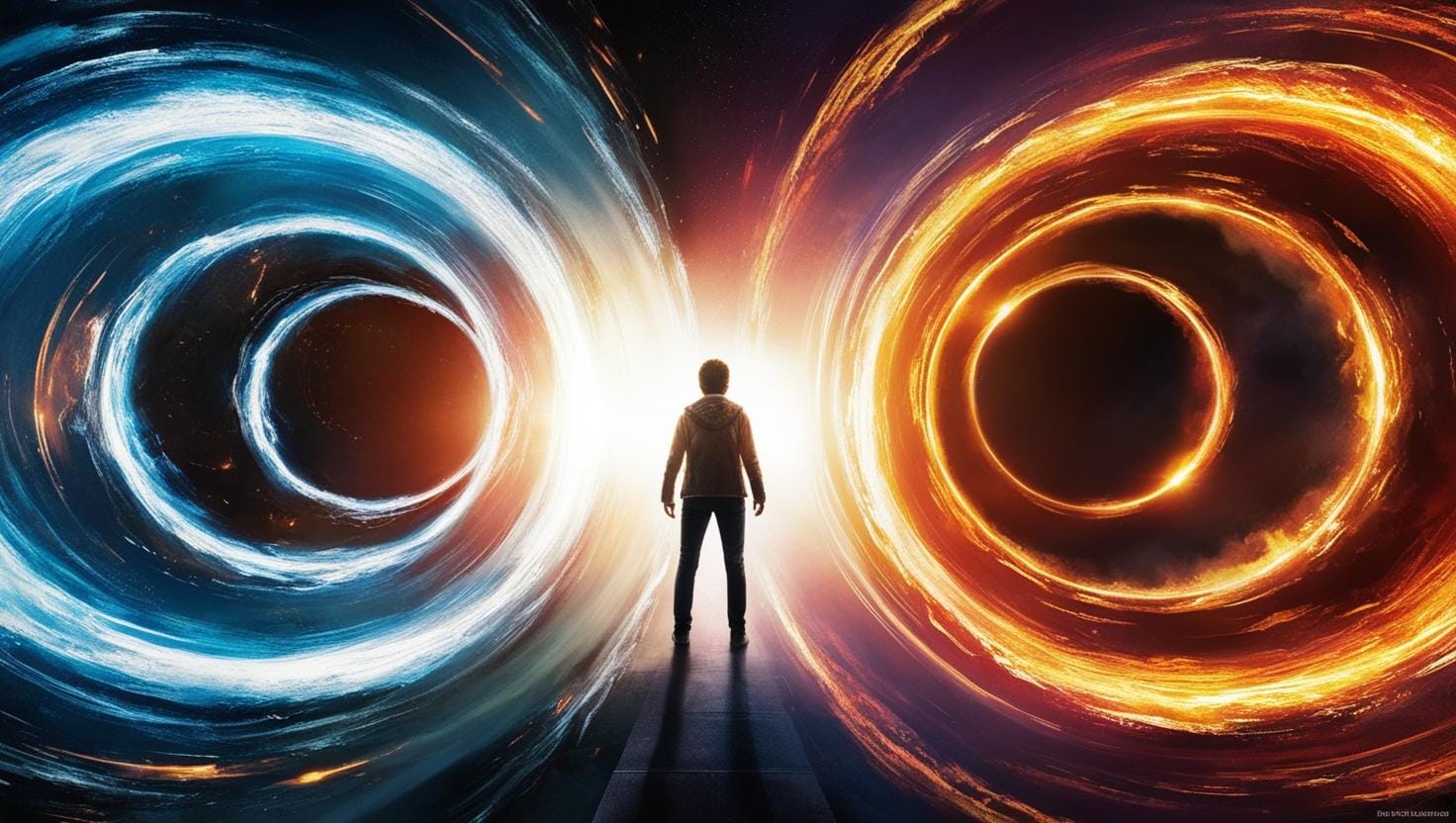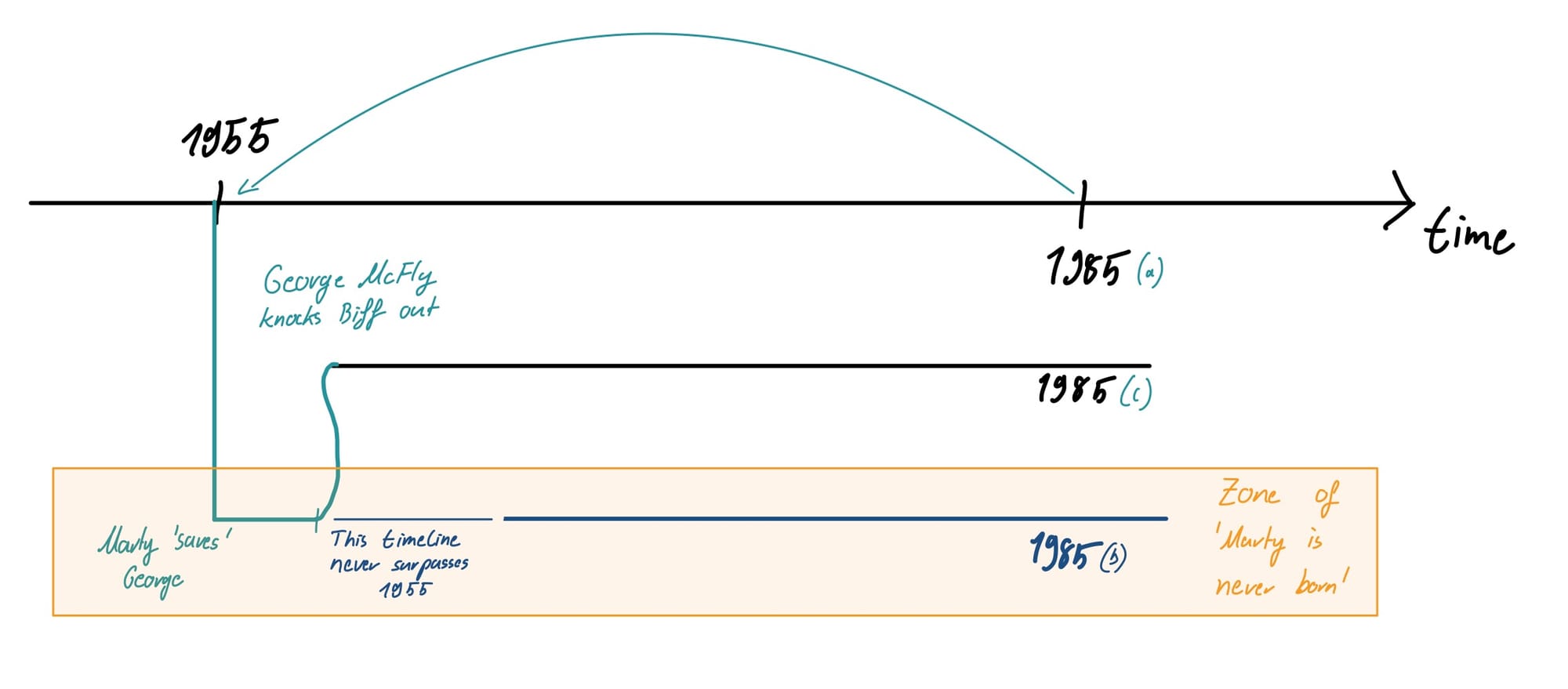Time Travel
Time is the ultimate frontier. Let us explore how far we've come in exploring its boundaries.

Time is the ultimate frontier.
This thought came to me while in church at my great uncles funeral. Our whole world is build on time. We fight to make more "free" time and to use our time wisely. Modern medicine is all about saving time, prolonging live and giving people more time in their lifes. My great uncle was 85 years old. He used his time well, cause he changed the world around him for the better.
Let us ponder the question 'what is time?'
In physics we define time as a unit and as dimension. We live in a three dimensional space, but time is commonly used as a fourth dimension. Since Einsteins Theory of Relativity we know that time is relative. It is influenced by mass and acceleration. It slows down during great accelerations. This is the theoretical framework for time travel to the future. Since time moves slower for the moving, we age slower in a space ship than the people on earth. In fiction this is applied in 'Planet of the apes'. The spacefairers travel far and at high speed only to come back to earth a few thousands years later.
But traveling to the future is far less interesting than traveling to the past. In fiction we find many different time travel concepts. Lets start with the unique concept of 'The Prisoner of Azkaban' from the Harry Potter series.

Time travel doesn't change a thing. Everything happens in the first place. When Hermione and Harry use the time turner to save Buckbeak, he has already been saved. They were always destined to travel in time and all events happened as they did, because there where two Hermiones and two Harries in this short time frame. It's really difficult to grasp but this is the most logical time travel concept there is.

If we look to time travel like in 'Back to the future', time travel could really mess up our reality. The Protagonist Marty McFly traveled back to 1955 and by accident prevented his parents from meeting in the first place - so he could have been the very reason he never existed - a time paradox. This version creates alternate realities. The universe allowed Marty to stay in 1955 until the 'Enchantment under the sea'-Dance, where his parents had their first date. So Marty had to try to prevent the alternate reality (a reality where he did not exist) from coming to live. The timeline of 1985(a) where he came from was destroyed as soon as he traveled to 1955. He created 1985(b) by pushing his 1955-Dad away from the car, thus preventing him to meet his mother in the first place. And finally Marty created 1985(c) by bringing his parents finally together by making his dad stand up to the bully he always feared. It gets quite complex, because every action can make a new branch of reality. This concept is wide spread among time travel fiction.
Another interesting version of this concept is used in 'Avengers: Endgame'. But there people are not only able to travel through time, but time is also able to travel through people. Which offers a whole new set of possibilities.
If we look further into these kind of concepts we will find something like 'Prince of Persia: The Sands of Time' where our protagonist is not only able to create an alternate reality, but can also manipulate the time flow it self. With the dagger of time he can reverse time, speed it up or slow it down as he likes. This often saves him from peril by reversing time and than encountering the same situation again with the knowledge how he was defeated. Speaking of encountering the same situation again...

Another common concept of time travel is established in Groundhog Day. Phil Connors is stuck in a time loop, a special form of time travel he is bound to repeat the same Day over and over again until he finally learns his lesson. This also creates different branches of reality but all but one are dead anyway because the day start all over again.
We see that there are different concepts of time travel in science fiction. Previously we stated, that time travel in the future is possible when achieving an acceleration close to light speed. But how about travel to the past? This is where it gets difficult.
Theoretically worm holes can link different points in space time together. So in theory they could link us to the past. Again Einsteins Theory of General Relativity made it possible to describe wormholes in the first place. In 1935 the theoretically framework of linking two black hole together through space time was made. Albert Einstein and Nathan Rosen found a solution for the so called Schwarzschild-Metric and thus made wormholes possible. This link is a called a Einstein-Rosen-Bridge. The only difficulty is, that it is not traversable because it collapses immediately.
But not all hope is lost. The Casimir effect may make some mass in our universe negative. It is believed by physicists like Stephen Hawking and Kip Thorne, that by using this effect wormholes could be made traversable. The Morris-Thorne-Wormhole is the only concept that describes this phenomenon. By using exotic matter, e.g. matter with negative mass or tachyons with complexe mass which move faster than the speed of light, Worm holes could be made traversable and link to parts of space time. The only problem is, that no one ever encountered exotic mass.
So the conclusion to all this is that man did not conquer time yet. It remains the 'ultimate frontier'. We did not conquer all of space yet, but conquering time may give us the possibility to do so. For now we can only look into Science Fiction for what actual time travel may be.
You liked this article? Let me know in the comments below. Subscribe to be notified, whenever a new article drops.
See you soon, Nils.

